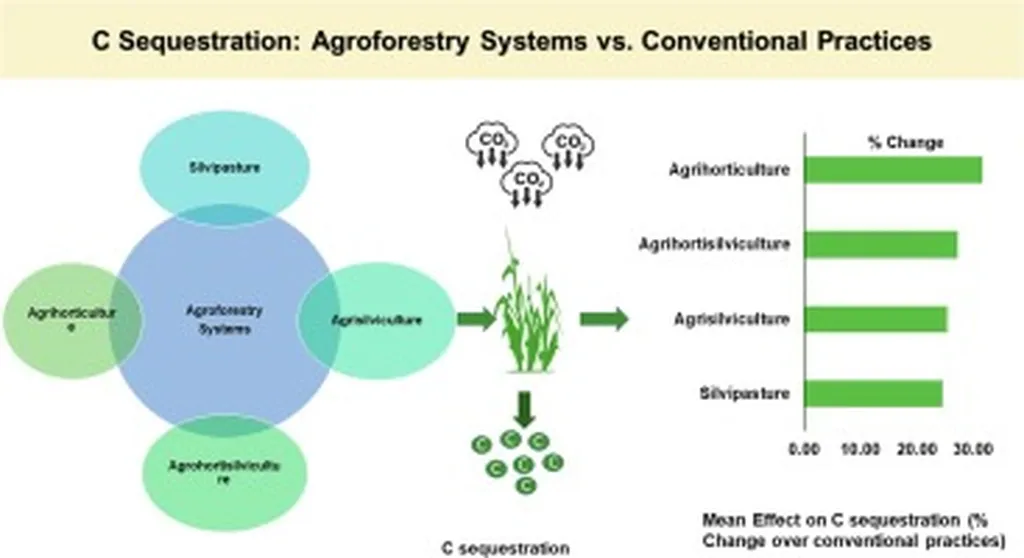In the heart of India’s semi-arid regions, a groundbreaking study is reshaping the way we think about agriculture, climate change, and economic viability. Led by Anupama GV, a researcher affiliated with the International Crops Research Institute for the Semi-Arid Tropics (ICRISAT) and the International Food Policy Research Institute (IFPRI), the study published in the journal ‘Sustainable Futures’ (translated to English as ‘Future Sustainability’) is a beacon of hope for farmers and environmentalists alike.
The research, which evaluated the impact of integrated management practices on yield improvement and soil organic carbon (SOC) sequestration, has far-reaching implications for the energy sector and beyond. By combining biochar application, optimized irrigation, and fertilizer management, the study found that these practices not only improve crop yields but also significantly enhance SOC levels.
“Our findings indicate that integrated practices consistently improve yields, SOC levels, and economic viability,” said Anupama GV. “For instance, maize yields under integrated practices increased by over 30%, with substantial SOC gains.”
The study used APSIM simulations across five districts in Maharashtra, India, comparing these integrated practices with conventional farming. The results were striking. The integrated practices not only boosted crop yields but also proved to be economically viable for smallholder farmers, with high benefit-cost ratios.
This research is a game-changer for the energy sector, particularly in terms of carbon sequestration. By enhancing SOC levels, these practices can help mitigate greenhouse gas emissions, contributing to global efforts to combat climate change. Moreover, the economic viability of these practices makes them an attractive proposition for farmers, potentially driving widespread adoption.
The study also offers policy recommendations, including subsidizing biochar, promoting precision irrigation technologies, and integrating SOC sequestration strategies into national climate action plans. These recommendations could shape future developments in the field, paving the way for more sustainable and economically viable agricultural practices.
As we grapple with the challenges of climate change and food security, this research provides a ray of hope. It underscores the transformative potential of integrated practices in addressing these pressing issues, particularly in resource-constrained settings. By bridging the gap between environmental sustainability and economic viability, this study is a significant step forward in our quest for a more sustainable future.
In the words of Anupama GV, “This study highlights the potential of integrated practices in addressing food security and environmental sustainability. It provides actionable insights for scaling sustainable agricultural practices in resource-constrained settings.”
As we look to the future, this research could shape the way we approach agriculture, climate change, and economic development. It’s a testament to the power of innovation and the potential of integrated practices to drive positive change.

